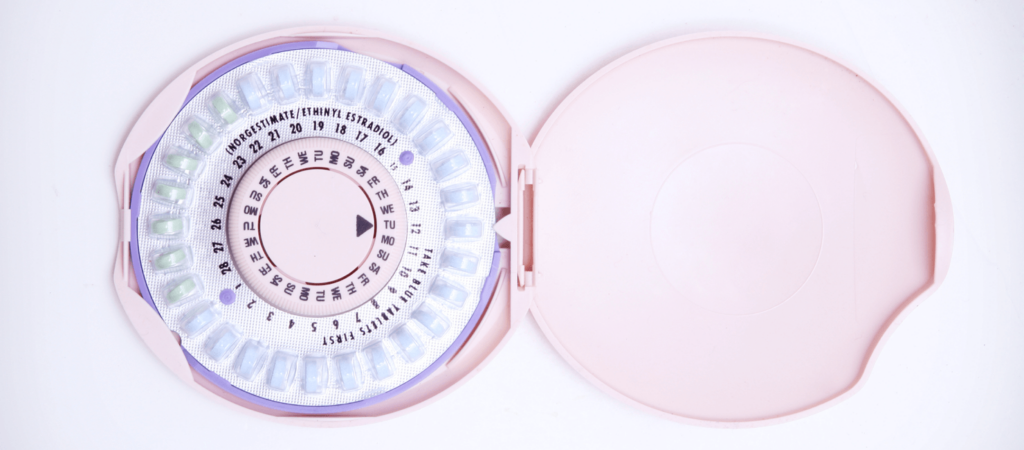Contraceptive access in the U.S.
The standard yardstick for contraceptive access is pretty simple: For every 1,000 women, there should be at least one nearby clinic offering publicly funded birth control options.
But the disturbing reality is nearly 20 million women in this country live miles away from their nearest clinic. Worse still, these vast stretches, called contraceptive deserts, are expected to grow in the coming years with a shift in federal priorities.
What are contraceptive deserts?
You may live in a contraceptive desert—even though you probably never called it by that name. But you may have noticed it was hard to find a neighborhood doctor, or your closest clinic was always busy.
Using a healthcare access model developed by Richard Cooper, M.D., of the University of Pennsylvania Wharton School, a team recently analyzed the state of contraceptive access in this country. They discovered nearly one-third of American women live in a contraceptive desert.
These deserts are generally concentrated in the Midwest, Upper Midwest, and in some Southern states. For instance, in nearly half of Nebraska counties and around one-third of Texas counties the number of clinics providing publicly funded contraceptives is zero.
Why does this matter? This stark divide creates a country of healthcare haves and have-nots. Ensuring reliable access to publicly funded birth control is important for the millions of women who lack health insurance or rely on government insurance programs like Medicaid.
Why is contraceptive access important?
Nearly half of pregnancies in this country are unplanned. Without reliable access to contraceptives, the number of unexpected pregnancies will only grow.
An unplanned pregnancy is a game changer, with the potential to derail your educational or career plans.
Planning your pregnancies with birth control puts you in charge of your future. Research shows birth control helps women earn, learn, and lead productive lives. More than three-quarters of women surveyed at family planning clinics said contraceptives helped them take care of themselves or their families. More than six in 10 said birth control helped them keep a job or pursue their education.
Contraceptives also lower the risk of maternal and newborn deaths and unsafe abortions, improve birth outcomes, and help women manage health conditions, per the American Public Health Association. It noted, “the development of safe, effective contraception is widely considered to be one of the greatest public health achievements of the 20th century.”
Why are contraceptive deserts expected to spread?
The Trump administration is changing birth control in two crucial ways. First, the administration wants to let more employers decide not to cover birth control in insurance plans for moral or religious reasons. The administration also proposes shifting money away from a federal program, called Title X, that’s the only source of federal funds for contraceptives for low-income women without health insurance.
When it comes to getting affordable contraception, these policy changes could be a double-whammy, restricting access to many women—and uninsured women in particular, who spend more of their paychecks on contraceptives. A national study published in the journal Contraception found the cost of birth control pills accounted for almost 70 cents of every dollar an uninsured woman spent on healthcare annually.
What can you do?
Whether you live in a contraceptive desert or not, you probably found Nurx after struggling to get a birth control prescription or refills. When we asked Nurx users about their experiences, they described scrambling to take time off work to get to the doctor, and waiting hours to see a provider.
Finding time to pick up refills was another ordeal. One woman told us, “I work three jobs and was terrible about refilling on time. If I missed by two days, I’d have to restart my pack and my cycles would get so messed up. Now you guys send me 3 months at a time and my cycles are regular again. I don’t have to worry about it every time my pack runs low, and honestly that’s a huge weight off my shoulders.”
Some of you described feeling betrayed by a doctor who told you—incorrectly—you needed a Pap smear to get a birth control prescription. “That stung,” said one Nurx user. “I found out they’d been lying to me for my entire reproductive health history.”
Others felt coerced. “My doctor was basically holding my birth control hostage,” a Nurx user told us. “I couldn’t get a refill without an appointment. Being a new mom starting a new job, I can’t miss work the first 90 days. The doctor would be closed long before I was off. There was no way. Thank goodness for my Google search of desperation. Thank you Nurx.”
Nurx doesn’t believe contraceptive access should be based on your zip code, job, transportation, time, or insurance. Its mission is to make sure everybody has access to affordable birth control— no matter where you live, what you earn, or whether you have health insurance.
Nurx is now available to 70 percent of women in the U.S. If you support our mission, tell your friends. Spread the word. Tell them to sign up at www-test.nurx.com.
This blog provides information about telemedicine, health and related subjects. The blog content and any linked materials herein are not intended to be, and should not be construed as a substitute for, medical or healthcare advice, diagnosis or treatment. Any reader or person with a medical concern should consult with an appropriately-licensed physician or other healthcare provider. This blog is provided purely for informational purposes. The views expressed herein are not sponsored by and do not represent the opinions of Nurx™.







